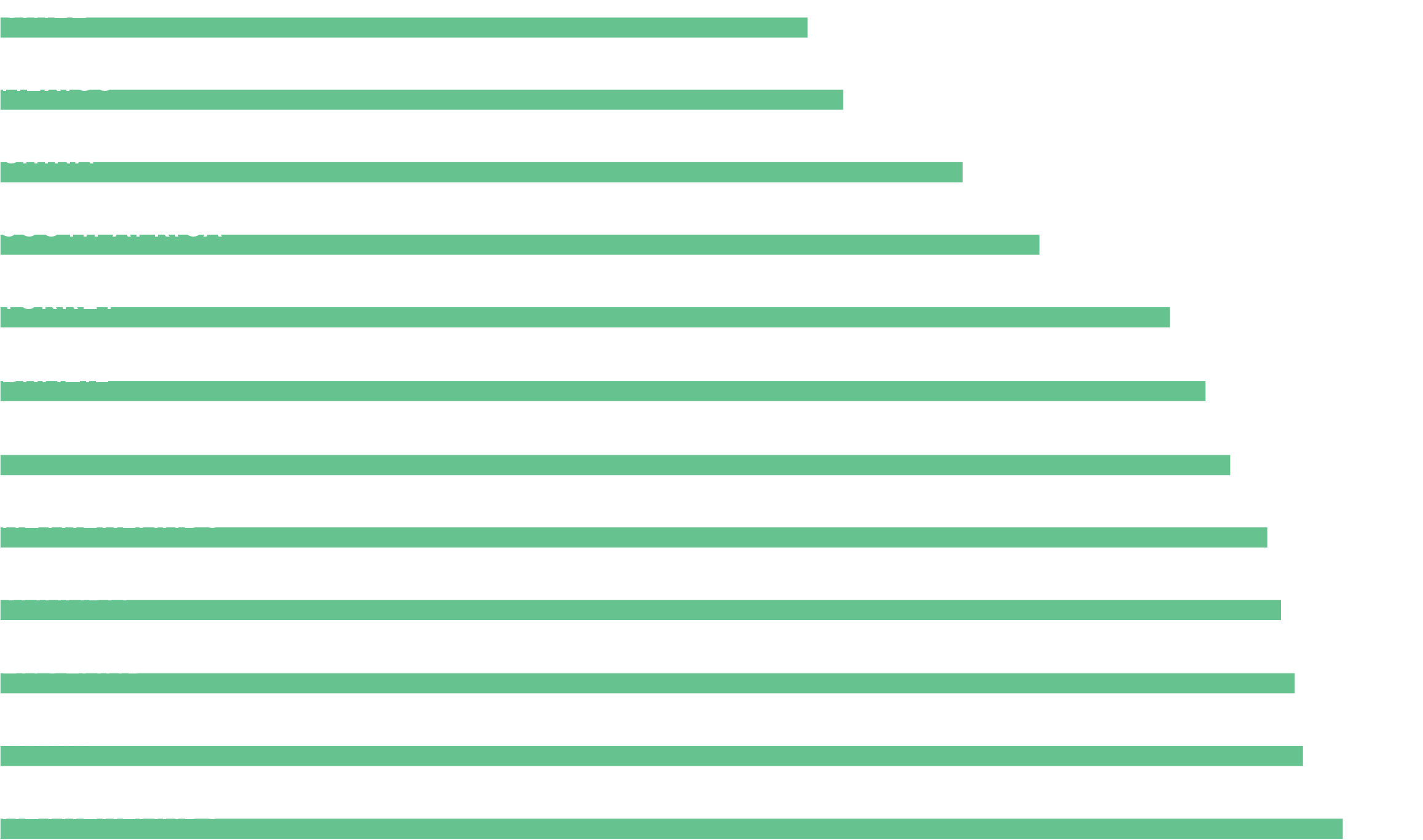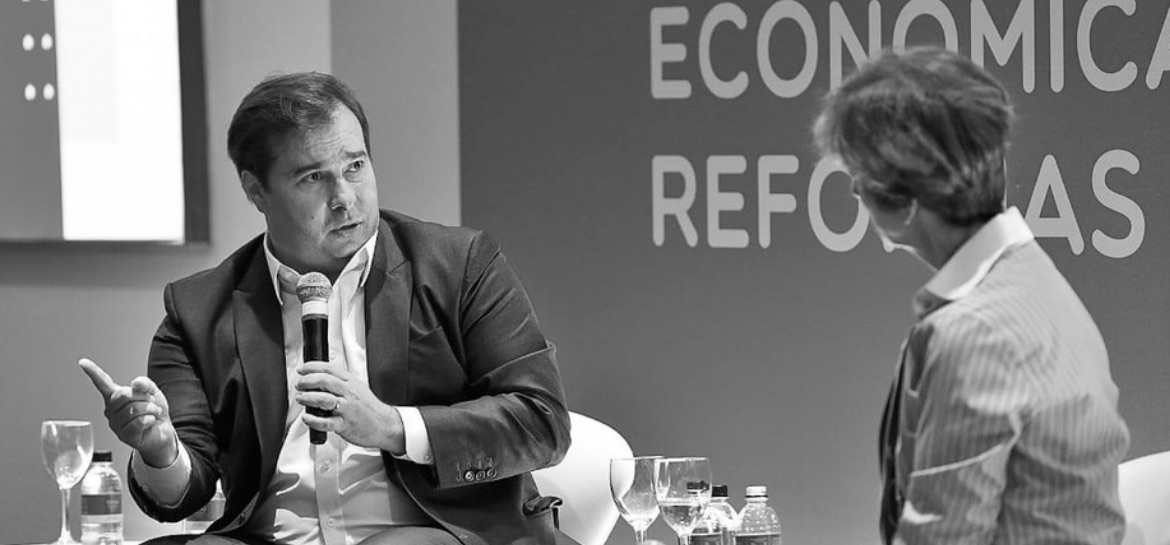

Causes
Causes
FIGHTING AGAINST COVID-19
The COVID-19 pandemic required urgent measures for Brazil to overcome the crisis. To this end, CLP prepared a plan with short, medium, and long-term guidelines to help public leaders and citizens to face the collapse in the social, economic, and health spheres.
We acted on two fronts: How public leaders can fight the pandemic in their municipalities; and what measures the government, and Congress should take to beat the coronavirus and recover the Brazilian economy.
We also created the States' COVID-19 Ranking, updated every 15 days and published by Broadcast , from O Estado de São Paulo newspaper, to identify the places with the greatest need for assistance. The study follows the Competitiveness Ranking of States' methodology.
In the CLP Agenda to fight the pandemic, public leaders and citizens can find information, ways to engage, studies, and indications on how to overcome the crisis.
In the face of the government leadership vacuum, civil society is assuming its role in mobilizing other sectors around a plan aimed at Brazil's social and economic recovery.
In this context, CLP and other institutions engaged in the creation of #UnidosPeloBrasil (United for Brazil, in Portuguese) a coalition that aims to dialogue with the federal government and the Legislative Branch to approve, by the end of 2020, at least 25 bills that are being processed in the Brazilian Congress, allowing the recovery of employment, income, and sustainable development in the country.
COMPETITIVENESS
Diagnosis and priorities to generate better socioeconomic results
CLP understands that a competitive State is one that promotes continuous improvement of its operation (seeking to improve and increase its processes, projects, and resources) by proving them through the advance of its final data-based indicators — acceptable educational levels, reduced mortality, job and income generation, improved public security, tax data, among others.
Nine years ago, the CLP (Center for Public Leadership) decided to migrate the competitiveness concept from private to public sector and compare the performance of Brazilian states, also observing how they behaved towards the member countries of the Organization for Economic Co-operation and Development (OECD).
The work that started in 2011, resulted in the Competitiveness Ranking of the States. For CLP, competitiveness is the ability of a state to more successfully fulfill its mission of promoting social well-being through a set of factors, institutions, and policies. The ranking is based on the principle of the Global Competitiveness Index's base concept of the World Economic Forum, whose objective is to encourage the 'creation of public policies oriented to the long-term, being a guide for government officials around the world.' According to the index, by enabling a direct comparison between the federation units, these ranking systems provide citizens, public leaders, and the private sector with an efficient tool for evaluating and collecting public management results.
The 2019 version of the Competitiveness Ranking of the States addressed the 26 states and the Federal District comparatively, in a methodology that analyzed 69 indicators based on ten thematic pillars: fiscal creditworthiness, social sustainability, efficiency of the public administration, environmental sustainability, education, public security, market potential, innovation, human capital, and infrastructure. These are indicators that can help public managers technically structure their strategic agenda, build their plans, and create sectorial public policies.
OUR REACH FROM 2018 TO 2019
USE THE RANKING IN THEIR PLANNING, MANAGEMENT CONTRACTS, AND INVESTMENT ATTRACTION
REPRESENTED AT THE LAUNCH EVENT
CONSULTANCIES AND FEDERATIONS USE THE RANKING
ENTERED THEIR POLICIES IN THE COMPETITIVENESS EXCELLENCE AWARD – GOOD PRACTICES HIGHLIGHT CATEGORY
RELEASES ACROSS THE COUNTRY IN 10 DAYS AFTER THE EVENT
AND MEDIA VEHICLE COVERING THE EVENT
IN MEDIA VEHICLE ACROSS THE COUNTRY IN 10 DAYS AFTER THE EVENT
AND VICE-GOVERNORS ATTENDED THE LAUNCH EVENT
OF STATE PRESENT
OVERALL RANKING
COMPETITIVENESS RANKING OF STATES
Results
The scenario brought about by the ranking was a total tightening of state public accounts, which demonstrates the need to choose public policy priorities. The ranking is always highlighted in the media, featuring television programs and the headlines of major newspapers.
To promote increases in competitiveness levels, CLP grants the Excellence in Competitiveness Award since 2015.
In addition to the rankings, CLP also defends the concept of accountability , inviting ordinary people to take on the responsibility of guiding and making decisions that change reality for the better. To achieve this autonomy, governments need to be transparent in accountability to society. Thus, citizens can understand how their taxes are allocated to public services and demand changes when they know that public policies do not reflect their wishes.
Learn more about the work performed by CLP from 2017 until the reform approval in 2019
The Social Security Reform put Brazil on the road to becoming a country with fewer privileges. After intense awareness-raising work, which began in 2017 with the government being open to discussing the topic, we promoted debates and publicized the reform, the text being approved in the second half of 2019.
We have formed a coalition with more than 90 institutions, working with Congress since the beginning of the year. We managed to build the largest civil society coalition in favor of the issue. In terms of communication, the Apoie a Reforma (apoieareforma.com),or “Support the Reform” website was created, which had over 50 million views; we published 400 articles in the media and carried out ten campaigns. In the political sphere, we directly approached more than 400 parliamentarians in 2019. We opened a dialogue with the main actors involved in the reform, making technical support available, producing data and projects on the topic, and personally following all the reform vote's movement.
Discover the Apoie a Reforma, network, which is formed by more than 90 mobilized institutions.
APPROVED REFORM: IMPACT OF R$ 1 BILLION
No site Apoie a Reforma apoieareforma.com
We held more than ten mobilization events for reforms at the electoral bases of the states in the first half of 2019
There is a system problem in our public sector. It does not appreciate those who deliver more and does not penalize those who do not deliver. The most important discussion is about the model we adopted, which transformed Brazilian public administration into a factory of inefficiency and demotivation. The CLP advocates the appreciation of the civil servant. Along with a network of third-sector organizations and engaged specialists, we understand the need to move forward on the topic. Therefore, we will work together to support this process in the coming years.
The entire administrative structure must act in a systematic and planned way, searching for significant results and not only in the fulfillment of legal and bureaucratic procedures. In the opposite direction, for several decades, people management in the Brazilian public sector has been guided solely by performing operational activities, without clear strategic definitions for human resources policies. The country also presents a tightening public accounts scenario, which creates an even more eminent need to rationalize the staff of civil servants.
Therefore, CLP proposes a profound reform of the government's human resources. The objective is to appreciate and reward good civil servants to have a public administration that is less uneven regarding wages and produces more incentives for delivering results to the population.
In January, the Apoie a Reforma network promoted the Economic Agenda and Reforms 2020 event, with the attendance of the Finance Minister Paulo Guedes, and the Speaker of the House, Rodrigo Maia, who addressed this year's economic agenda, particularly the Administrative Reform.
The event had a live broadcast from Estadão (O Estado de S.Paulo).
To achieve change we support five proposals, presented below.
Increased time frame to reach top-level positions: We advocate that the minimum time to reach the top of all careers is 20 years. We base our conclusion on the data from the Integrated System of Human Resource Administration (Siape, according to its acronym in Portuguese for Sistema Integrado de Administração de Pessoal). In some careers, the time required to reach the last level is only ten years. In addition to demotivating the server, this makes career wages not compatible with the private sector.
End of the judges' two-month vacation: In addition to costing the public treasury about R$ 4 billion per year, they have an efficiency cost of 7 years of service for each worker who receives this privilege. The two-month period is twice the vacation period of most private-sector workers.
The number of careers: It is essential to simplify and reduce the number of careers in the public administration and its own rules and create transversal and broad careers, allowing for the allocation of personnel in different areas.
As in the private sector, performance appraisal has to influence the career and earnings of the civil servant, not being merely formal and having no impact, as it currently occurs.
Selective career progression: Automatic career progression must end. Progression should be based on merit and be measured by serious performance reviews. There should be a preference for promotions linked exclusively to the public service's performance and interest, as well as those conditioned to the existence of vacancies at the higher level, which must be in a minimal number.
Em janeiro de 2020, o CLP realizou evento sobre a Reforma Administrativa com o ministro da Economia, Paulo Guedes, e o presidente da Câmara dos Deputados, Rodrigo Maia.
The debate was featured in the O Estado de S.Paulo newspaper
GOVERNMENT EXPENDITURE RELATED TO GDP % GDP, 2016

THERE IS A NEED FOR A STATE REFORM THAT AIMS:
CLP seeks to promote significant changes in the political system so that there is a greater representation, civic engagement, and democratic qualification. According to a survey by the Ipsos Institute (2017), only 6% of voters feel represented by the politicians they have already voted for, and only 38% positively evaluate the Brazilian democratic regime. Given this scenario, it is clear that the current electoral system does not meet the population's expectations and that we should question the concept of proportional elections. In general, citizens do not understand how and why the winners were elected. Above all, there are a series of distortions that lead to a gap between interests defended by elected officials and voters' expectations: an excess of parties, programs, and depthless plans, alliances for interests of simple power maintenance, the infeasibility of consistent debates, and limitations to the creation of consensus that drive voters away from politics before, during, and after elections.
To change this structure, CLP listed eight measures that can result in public policies aligned with society's expectations.
Mixed district voting: CLP approves the combination of the majority and proportional systems. With the mixed district vote, the voter has two votes in each election for city councilor and deputy: he/she votes for a candidate in his/her district (defined geographical area of the city or state where he/she lives) and a list of candidates offered by a party, ordered and previously disclosed. Thus, half of the parliamentarians will be elected by a majority vote of the districts, representing the population's local demands. Candidates from the most voted parties will fill the other half of the seats.
Regulation of the mixed district vote and districts' division: We advocate that the mixed district vote follows the country's division criterion established by the Brazilian Institute of Geography and Statistics (IBGE, according to its acronym in Portuguese for Instituto Brasileiro de Geografia e Estatística).
Regulation and improvement of mixed financing of electoral campaigns: The funding of electoral campaigns should reflect the plurality of society's voices and potential. To this end, we advocate balanced regulation, in which the State, citizens, and private and social initiatives can make their contribution with total transparency.
Adoption of the election threshold, end of the coalition, and no to 'single non-transferable vote': CLP's last conquest, the Constitutional Amendment (EC) 97, approved in 2017, established that political parties will not have access to Party Fund resources and free electioneering advertising time on radio and television if they do not present a series of requirements. They are: a minimum of 1.5% of the valid votes for federal deputy, distributed in at least one-third of the Federation units, with a minimum of 1% of the valid votes in each of them; or have elected at least nine deputies distributed in at least one-third of the States. The measures have already started to take effect during the 2018 election and will be applied gradually until 2030.
EC97 also put an end on the coalitions. It comes into force as of the 2020 municipal elections. Both the election threshold and the end of coalitions seek to reduce the number of parties, which aimed only to receive the Party Fund resources and to establish financially beneficial partnerships, disregarding the real public interests. Such changes may reflect a greater sense of popular representativeness in the political parties' actions, and consequently, in the formulation of better public policies.
The formation of the 'single non-transferable vote,' where the most voted candidates from each State are elected, is not seen as a solution for the national political system.
An electronic signature of popular initiative's bills: The 1988 Federal Constitution inspires the regulation of democratic participation mechanisms. In this sense, the Bill 2005/2013, which establishes the possibility of electronic subscription for presenting a popular initiative's bill, awaits a vote in the Chamber of Deputies' full court. CLP believes that access to the claims of the population is essential for democracy development and encouraging citizenship.

President of the House of Representatives Rodrigo Maia (DEM-RJ) debating Pension Reform